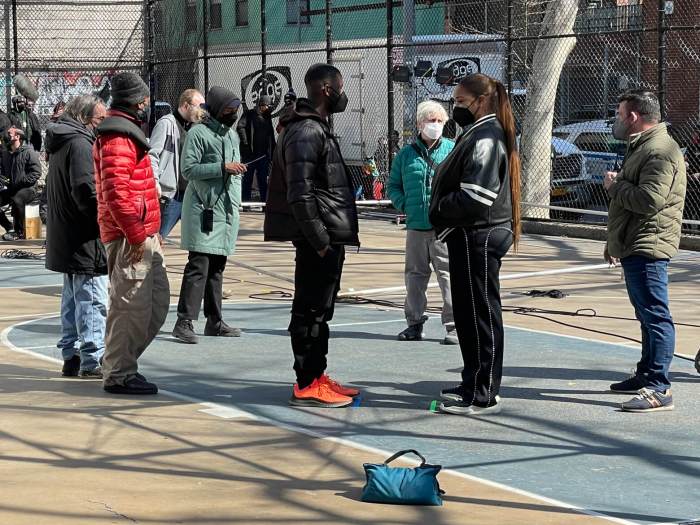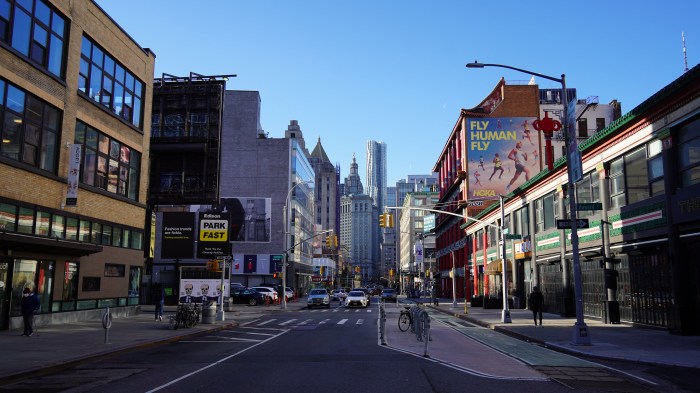BY JOHN CATSIMATIDIS | New York City should not move forward with proposals to raise or eliminate the cap on the number of street vendor permits until we reform the current regulations. In addition, officials must have a full understanding of the impact that these mobile vendors have on brick and mortar businesses and the union employees that work in many of them, as well as the impact that street vendors have on the quality of life in our neighborhoods.
Sadly today in too many neighborhoods, our business owners, including many of the “mom and pop” stores we all grew up with, are facing unfair competition from street vendors. Brick and mortar business owners are being asked to pay higher rents and insurance premiums, and are burdened with excessive regulations, fines, and taxes. They are also competing with street vendors who are parked just a few feet away from their locations, selling similar products for much less because they simply do not have these same overhead costs and intense scrutiny by city agencies. It is time that our city create comprehensive and clear guidelines governing all street vendors, which include preventing them from operating within at least 200 feet of an established business, and work with local community boards to ensure that the quality of life on our streets are not negatively affected by their presence.
It is the brick and mortar businesses that are the backbone of our communities and that provide jobs to local residents. It is also the men and women who own these businesses who get involved with our community boards, civic organizations, and business improvement districts (BIDs) to enhance the communities where they often live and work. These are also the same businesses that are least able to afford the unfair competition from street vendors with little overhead, selling cheaper products.
Express Yourselves
For smaller mom and pop stores, losing customers to a street vendor means losing much needed revenue, making it extremely difficult to stay afloat. For larger businesses, including supermarkets, losing sales due to a fruit cart right outside their front door can cause layoffs or the reduction of hours of union employees in the produce department.
I started my first business from scratch when I was in my 20s. I know firsthand the incredible hard work, long hours, and personal and financial investment involved in opening and running a neighborhood store. I remember the constant worry in those early years about making a payroll and paying the bills because I knew my employees were counting on me each week for their paycheck so they could pay the rent and feed their families. These concerns still exist today for business owners, and city officials must take them into account as they consider proposals that would benefit street vendors at the expense of other businesses.
In addition to what many small business owners see as an unfair advantage, street vendors, especially mobile food carts, are often responsible for increased litter on our sidewalks. As Manhattan Community Board 8’s Street Vendor Committee recently noted as they urged the City Council not to increase the number of permits to street vendors, increased litter and sidewalk congestion are often associated with these unregulated vendors. Ironically however, when there is litter on the sidewalk, it is usually the local brick and mortar storeowners who receive the fine from the Sanitation Department for the trash on “their” sidewalk.
In fact, several years ago in southwest Brooklyn, Community Boards 10 and 11, the 86th street BID, and officials of both political parties united in a request to the New York City Department of Small Business Services to include mobile food carts as part of the BID’s street vendor-free zone. This zone in Bay Ridge, between Fourth Avenue and Fort Hamilton Parkway on 86th Street, was created by the city decades ago because of the high volume of pedestrian and vehicular traffic.
There have been and continue to be tensions between street vendors, local community members, and business owners throughout New York City that must be comprehensively addressed. Street vendors have every right to make a living and follow their American Dream, as I followed mine; however, this should not be at the expense of small businesses and should not interfere with the quality of life in our communities.
We must enact policies that promote fairness amongst all types of entrepreneurs. New York City has to ensure a level playing field between all business owners from “mom and pop” stores and supermarkets to mobile food carts, and implement city policies that allow businesses of all kinds to open, grow, and expand to create more jobs. Blindly permitting the New York City Department of Consumer Affairs to increase or eliminate the cap on the number of street vendor permits is not a prudent action for our City Council.
John Catsimatidis is the owner of Gristedes Foods and the Red Apple Group and was a 2013 candidate for mayor.

















